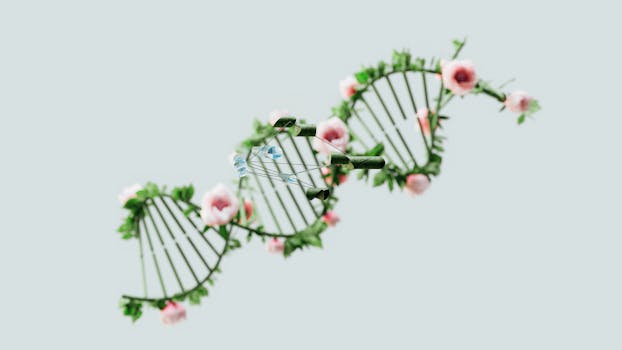
The Role of Genetics in Human Health and Disease
Genetics play a crucial role in human health and disease, with genetic factors influencing susceptibility to certain conditions and response to treatments. Genetics and human health are intimately connected, and understanding the relationship between the two is essential for developing effective prevention and treatment strategies.
Introduction to Genetics and Human Health

Genetics is the study of heredity and variation, and it has become increasingly clear that genetic factors play a significant role in many human diseases. The completion of the Human Genome Project in 2003 marked a significant milestone in the field of genetics, providing a comprehensive map of the human genome and paving the way for major advances in our understanding of the genetic basis of disease.
Genetic Factors in Human Disease
Genetic factors can influence an individual’s susceptibility to certain diseases, as well as their response to treatments. For example, some genetic variants can increase the risk of developing conditions such as heart disease, diabetes, and certain types of cancer. Additionally, genetic factors can affect an individual’s response to certain medications, with some people requiring higher or lower doses due to their genetic makeup.
Types of Genetic Disorders

There are several types of genetic disorders, including single-gene disorders, polygenic disorders, and chromosomal disorders. Single-gene disorders are caused by mutations in a single gene and can result in conditions such as sickle cell anemia and cystic fibrosis. Polygenic disorders, on the other hand, are caused by the interaction of multiple genes and can result in conditions such as heart disease and diabetes. Chromosomal disorders, such as Down syndrome, are caused by changes in the number or structure of chromosomes.
Genetic Testing and Screening
Genetic testing and screening can be used to identify individuals who are at risk of developing certain genetic disorders. This can be particularly useful for individuals who have a family history of a particular condition, as it can help them take preventative measures and make informed decisions about their health. Genetic testing can also be used to diagnose genetic disorders in individuals who are already showing symptoms, allowing for earlier intervention and treatment.
Treatments and Therapies for Genetic Disorders

There are several treatments and therapies available for genetic disorders, including gene therapy, enzyme replacement therapy, and stem cell therapy. Gene therapy involves replacing a faulty gene with a healthy one, while enzyme replacement therapy involves replacing a missing or defective enzyme. Stem cell therapy, on the other hand, involves using stem cells to repair or replace damaged tissues and organs.
Future Directions in Genetics and Human Health
The field of genetics is constantly evolving, with new technologies and discoveries being made regularly. One of the most exciting areas of research is in the field of precision medicine, which involves tailoring treatments to an individual’s unique genetic profile. This approach has the potential to revolutionize the way we approach disease prevention and treatment, and could lead to major advances in human health and well-being.
Conclusion

In conclusion, genetics play a crucial role in human health and disease, with genetic factors influencing susceptibility to certain conditions and response to treatments. By understanding the relationship between genetics and human health, we can develop effective prevention and treatment strategies, and improve human health and well-being. As the field of genetics continues to evolve, we can expect to see major advances in our understanding of the genetic basis of disease, and the development of new and innovative treatments and therapies.






